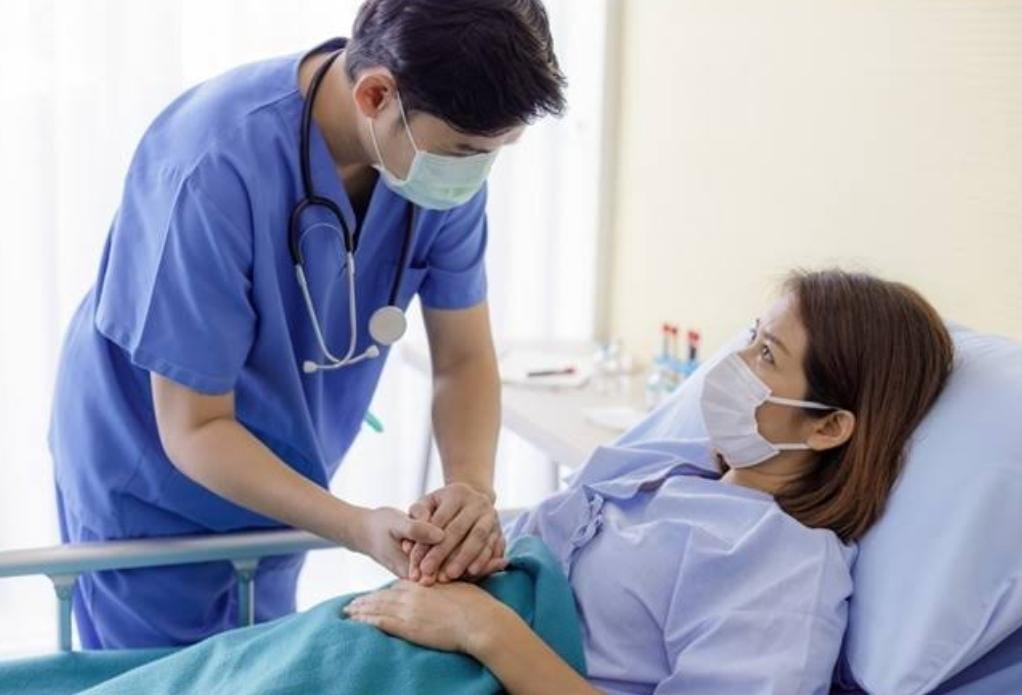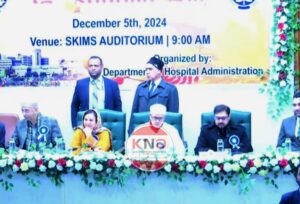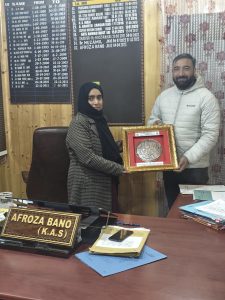World Cancer Day’ J&K witnessed 1640 new cancer cases in 2023; oncologists call for lifestyle changes

‘World Cancer Day’
J&K witnessed 1640 new cancer cases in 2023; oncologists call for lifestyle changes
Lung, breast cancers predominant; 51,577 cases reported between 2019-2022; 50% cancers preventable; quitting smoking, health balanced diet, physical activity reduce risk
Jahangeer Ganaie
Srinagar, Feb 03 (KNO): Cancer continues to emerge as a serious health concern globally, with Jammu and Kashmir witnessing an alarming surge in cases.
Renowned oncologists in the Union Territory, the news agency—Kashmir News Observer (KNO) spoke with, expressed deep concern over the rising numbers and called for an urgent need for preventive measures and awareness.
Dr Zahoor, a leading oncologist at SKIMS Soura, said there is a widespread impact of cancer. He, however, said that nearly 40 to 50 percent of cases are preventable through simple lifestyle changes like quitting smoking, maintaining a healthy balanced diet, regular physical activity and avoiding excessively processed foods.
Dr Sheikh Aijaz, another prominent oncologist in Kashmir, called for addressing the issue through epidemiological, scientific and molecular approaches, with a focus on prevention, screening and cost-effective measures. He also stressed lifestyle and dietary changes, especially quitting smoking.
“The treatment, especially in the blood and lymphoreticular malignancies, deserves instant attention and recognition,” Dr Aijaz said, adding that formidable treatment facilities are available in Kashmir which can be galvanised with support.
Prof Manzoor Ahmad, Head of the Department of Radiation Oncology at GMC Srinagar, said that World Cancer Day is observed to create awareness about this dreaded disease. He said there is a sharp increase in new cancer cases in J&K, with the department registering a record number of 1640 cases in 2023, out of which 911 were males and 729 were females.
“The most common tumour in males was lung cancer and in females breast cancer. This scenario looks very grim as far as lung being the most common tumour in males is concerned because this cancer has a direct bearing and relation with tobacco use,” he said. “This indicates the magnitude of tobacco products in our society and how much awareness we have to make among the general public regarding the use of tobacco.”
As far as breast cancer in females is concerned, one of the major reasons is the lack of physical activity and obesity. “So both the common cancers, whether it is lung in males or breast in females, could be easily avoided if we make some lifestyle changes,” Prof Ahmad said.
He called for public education through signs and symptoms of cancer, preventive measures and timely medical evaluations.
On the treatment facilities available, Prof Manzoor said, “We are self-sufficient concerning different modalities that particular cancers need for eradication. If we could prevent cancers from developing at the first place by adhering to healthy lifestyle practices, then obviously we could avoid all the pains and hassles that these patients and their accompanying attendants have to go through. Prevention is better than cure.”
Dr Shabnam, Kashmir’s first female organ-specific Onco-surgeon, described cancer as a new-age epidemic with a global burden costing around $1.16 trillion.
“There are over 100 different forms of cancers. Around 18 million new cases are being detected across the globe, with 9.6 million deaths per year (1 in 4 deaths due to cancer),” she said, “Unfortunately 70 percent of these deaths from cancer occur in low-middle income countries.”
Dr Shabnam added, “Currently there are 50.55 million 5-Year Cancer Survivors Worldwide and around 8 lakh new cases are being detected in our country every year (currently around 25 lakhs are living with cancer), and we have around 7-8 lakh deaths due to it every year in our country alone.”
“Good news is that 30-50 percent of cancers are preventable and early-stage cancers are curable. Cancers are conquerable only if we decide to stay aware and follow the preventive measures and seek help at the earliest,” she added.
The doctor added, “Food adulterations, packed, pre-cooked food, smoked food, highly processed red meat, high salt and high nitrosamine foods like salt tea and pickles also can lead to higher risk of various cancers. To reduce our risk, we need to consume fresh food, fruits, eggs, folate-rich and cruciferous vegetables, high turmeric and ginger consumption along with apples, pears and berries.”
Despite the rising incidence, doctors said there is the availability of quality treatment, including chemotherapy and radiotherapy, with continuous infrastructure enhancements for patient care.
Data from the Union Health Ministry indicated 51,577 reported cancer cases in J&K between 2019-2022, with 35,623 reported deaths during the same period.
According to the 2012 SKIMS study, the rising cancer cases are due to dietary practices, lifestyle choices and the consumption of foods with high salt content.
The healthcare professionals urged conscious lifestyle modifications, awareness, early detection and timely intervention to combat the growing menace of cancer in the region—(KNO)









